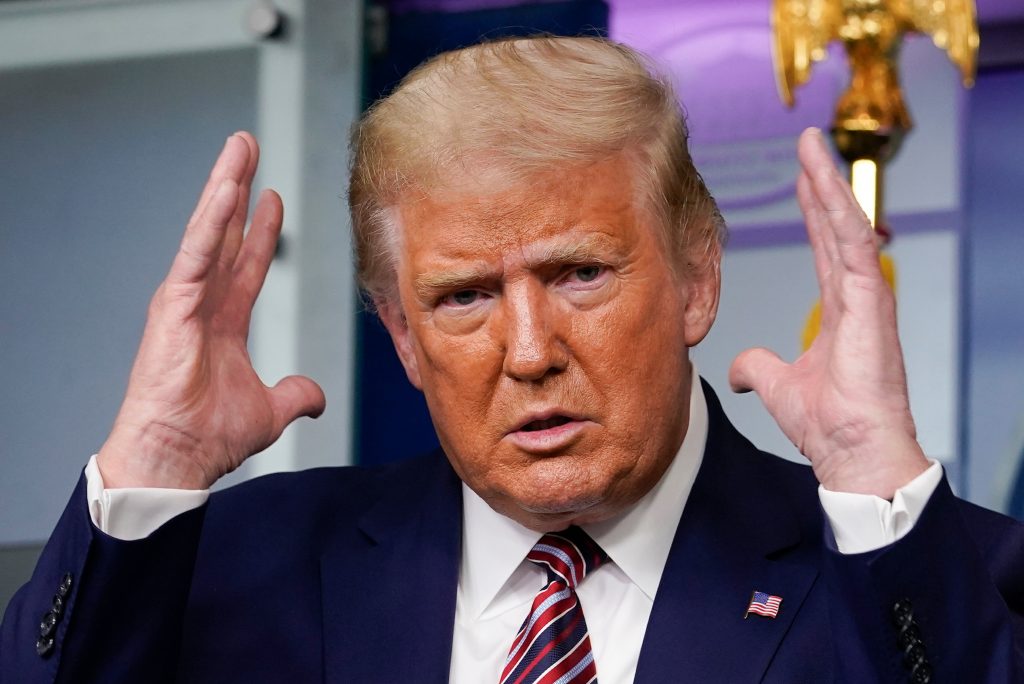The former president is willing to make as many rhetorical and policy shifts as he deems necessary to win in November, vexing some social conservatives.

At the age of 53, in a 1999 interview on NBC’s “Meet the Press,” Donald J. Trump described himself as “very pro-choice.”
In 2011, without any explanation about the change, he informed a packed room at a conservative conference that he was now “pro-life.”
In 2016, as a Republican candidate for president, he told the MSNBC host Chris Matthews that he had become so ardently opposed to abortion rights that he would even support punishments for women who got abortions. He did not realize that this position went too far even for the social conservatives to whom he was trying to pander, and he quickly reversed himself.
The 2024 version of Mr. Trump is once again tying himself in knots — but this time the stakes could not be higher.
The latest example came on Friday, when Mr. Trump — nearly a full day after his campaign had to clean up his suggestion that he might support a Florida ballot measure allowing abortion up to 24 weeks following backlash from social conservatives — told Fox News that he would vote against it.
Back in 2022, the former president had told allies — as the Supreme Court was preparing to overturn Roe v. Wade — that the move would hurt his party. Since that year, when Republicans underperformed expectations in the midterm elections, Mr. Trump has been privately emphatic with advisers that in his view the abortion issue alone could kill their chances of victory in November. And he is willing to make as many rhetorical and policy contortions as he deems necessary to win.
It is through that narrow political lens that Mr. Trump has been weighing the subject, despite his role in reshaping the Supreme Court that overturned the landmark 1973 abortion decision.
The results have been confusing and fluid, a contradictory mess of policy statements as he has once again tried to rebrand himself on an issue that many of his supporters view in strict moral terms, and had come to believe that he did, too.
Mr. Trump’s shifting views have been especially difficult for social conservatives to navigate. Some anti-abortion leaders in his orbit have tried lobbying him to align his public position with theirs. Many others are staying quiet and sticking by him, hoping that what he is saying now is just an act to get elected and that, if he does get elected, he will again govern as “the most pro-life president” in American history.
“I don’t think he’s losing support, but no question, his acquiescence is confusing to people,” said Chad Connelly, a former chairman of the South Carolina Republican Party who leads the nonprofit Faith Wins and has a following of hundreds of pastors.
However, he added that the contrast between Vice President Kamala Harris’s actions “versus Trump’s words” meant social conservatives would “look back and see the most pro-life president in American history.”
Still, even by Mr. Trump’s standards, the past few weeks have been head-spinning for people trying to keep track of his slippery social conservatism.
In 2016, Mr. Trump won with the help of a socially conservative running mate, Mike Pence, and with a promise that he would appoint justices who would end Roe. Publicly, Mr. Trump has repeatedly bragged about doing just that, and has falsely claimed that Democrats wanted it as much as Republicans did.
In private, Mr. Trump was agitated by the speeches at the Democratic National Convention, according to a person close to him, many of which tied him to Project 2025, an effort by people supportive of Mr. Trump to develop policy proposals for him if he wins that include restrictive ideas for reproductive measures. He was especially bothered by Ms. Harris’s assertions that a second Trump term would further imperil abortion rights.
